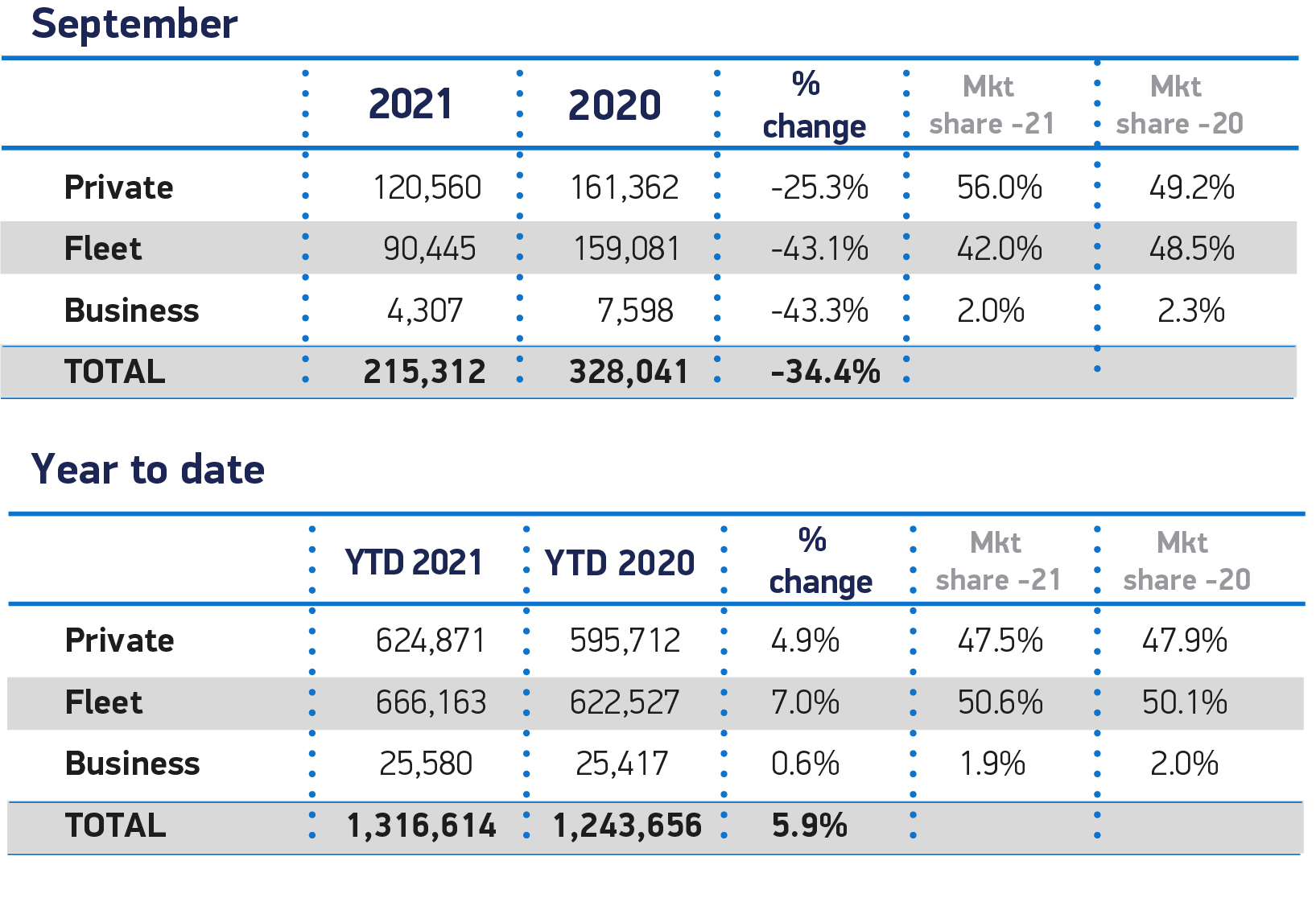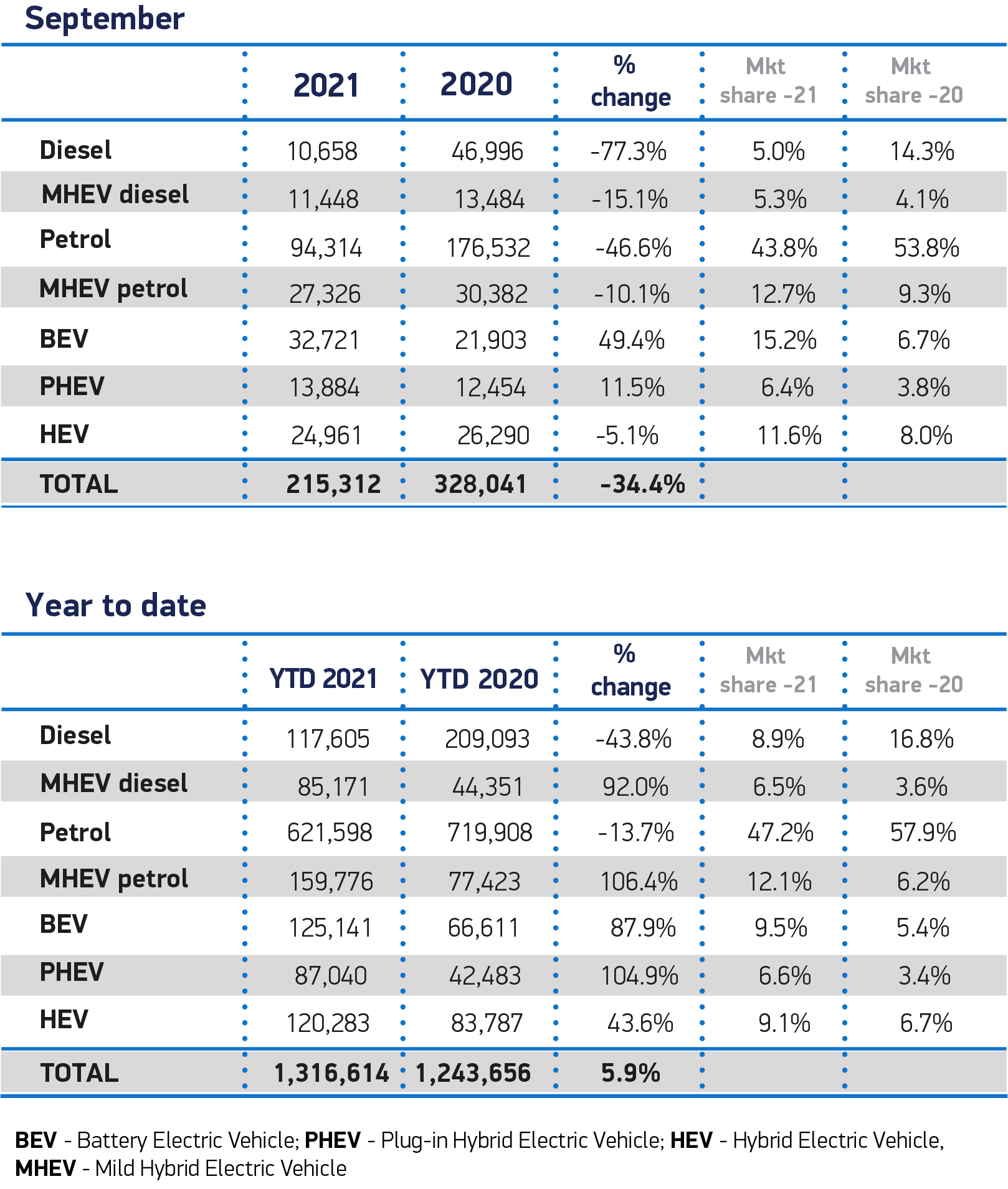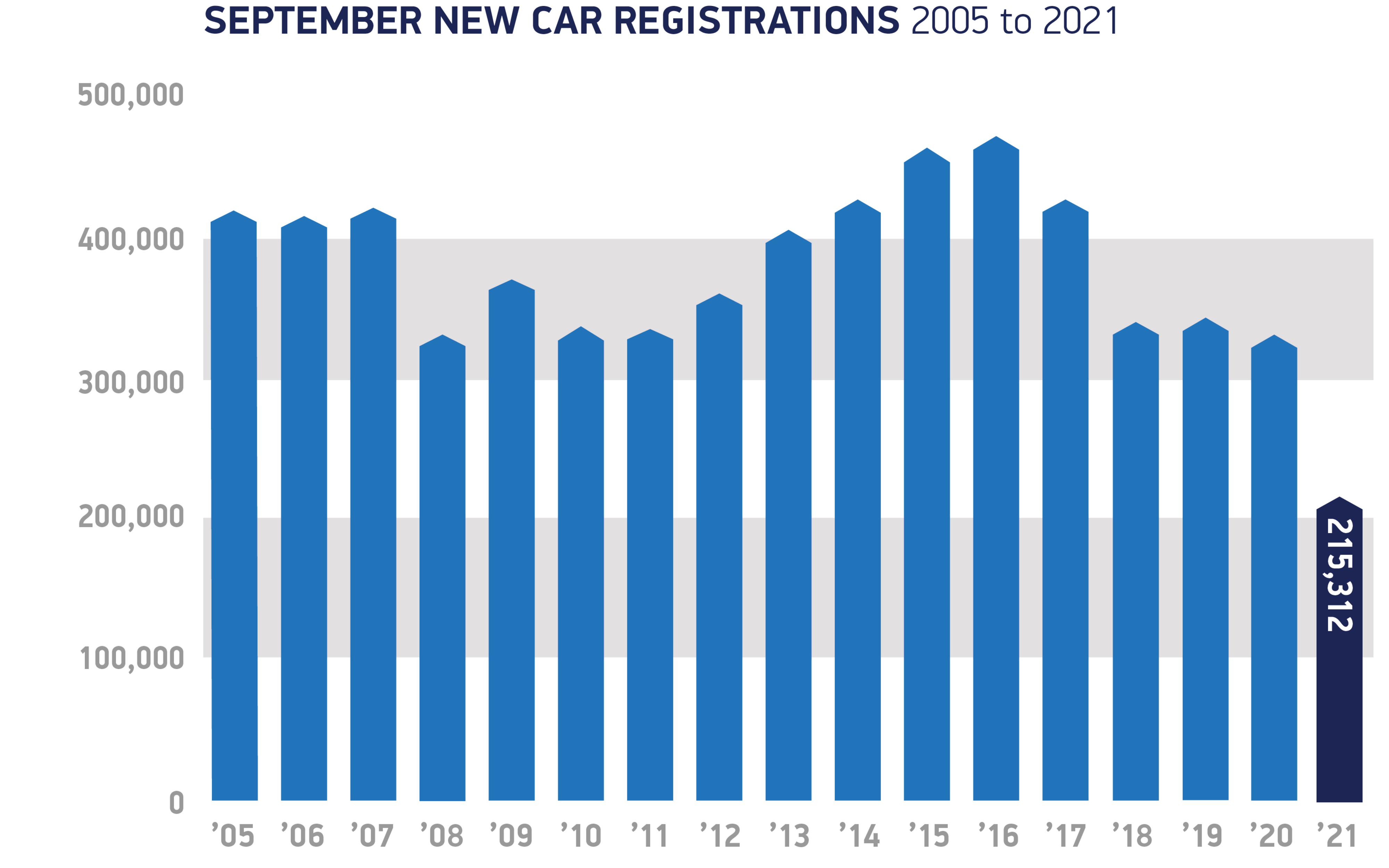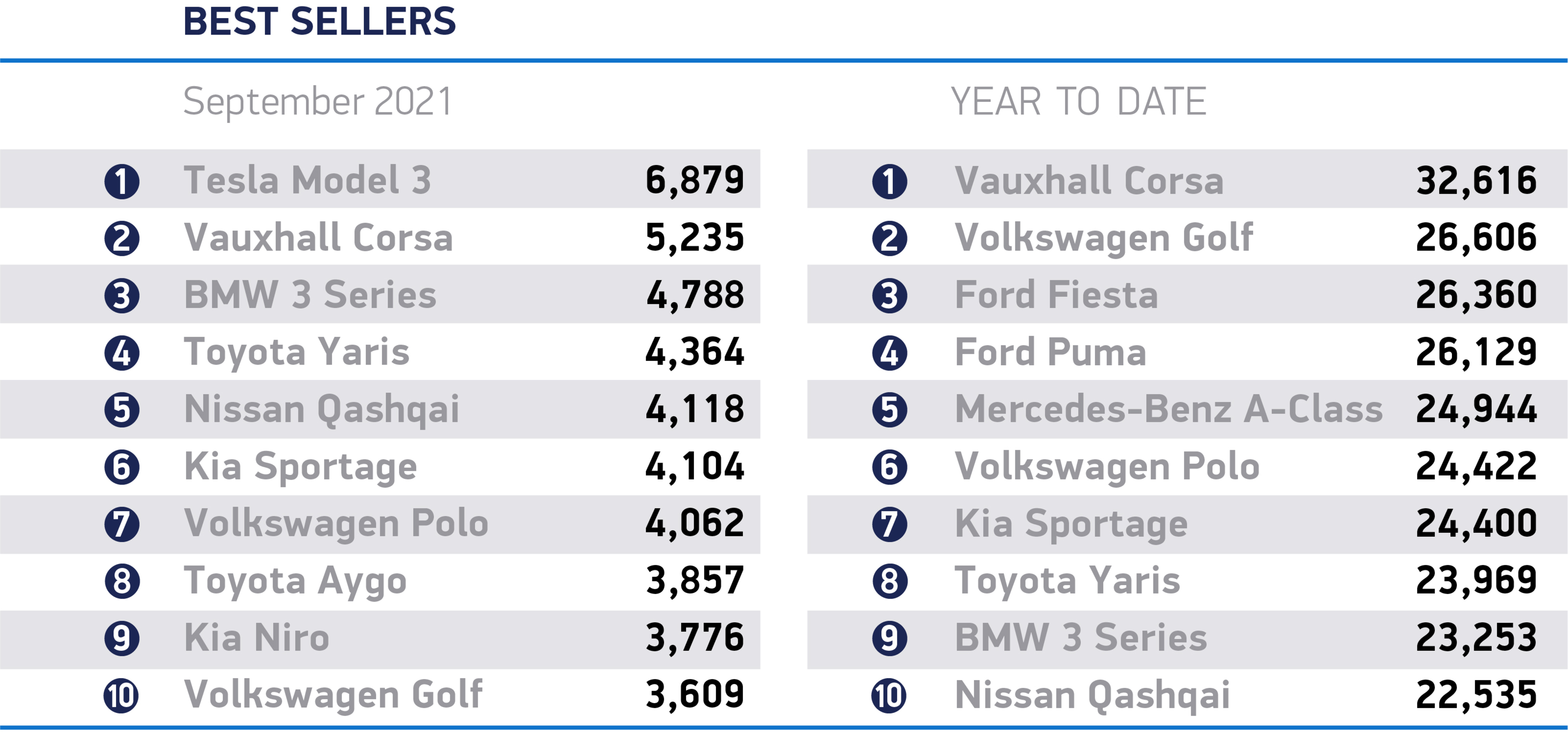New car sales 20 year low
Pandemics, parts shortages and the move to electric slow down buyers
New car registrations are at there lowest level for 20 years.
The semiconductor shortage is receiving much of the blame. But the post pandemic squeeze on incomes and the push of electric vehicle are also having a significant effect.
Last month, 94,752 new cars were registered to fleet and business. This compares with 166,679 units registered in September 2020, according to new data from the Society of Motor Manufacturers and Traders (SMMT).
Slow gains
September is typically the second busiest month of the year for the industry. However, with the ongoing shortage of semiconductors impacting vehicle availability, it’s a different road we’re on. The 2021 performance was down 44.7% on the pre-pandemic 10-year average.
SMMT chief executive, Mike Hawes describes it as “desperately disappointing”. The principle problem is blamed on “further evidence of the ongoing impact of the Covid pandemic on the sector”. While Hawes describes “strong demand for new vehicles over the summer”, these have been hindered by “reduced semiconductor availability”.
Plugging in
September was the best month ever for new battery electric vehicle (BEV) uptake. With a market share of 15.2%, 32,721 BEVs were registered in the month.
In fact, September’s performance was only just shy of the total number registered during the whole of 2019.
Plug-in hybrid (PHEV) share also grew to 6.4%. More than one in five new cars registered in September was zero-emission capable.
Meanwhile, hybrid electric vehicles (HEVs) grew their overall market share from 8% in 2020 to 11.6%. There were 24,961 registered in the month.
Growing confidence
Hawes said that despite supply challenges, the “rocketing uptake” of plug-in vehicles, especially battery electric cars, demonstrates the increasing demand for these new technologies.
Jamie Hamilton, automotive director and head of electric vehicles at Deloitte, said: “With battery electric vehicles outpacing even plug-in hybrid this month, this demonstrates a level of consumer confidence that the charging infrastructure will be in place.
“However, gaps still remain and a more equitable rollout of public charging points would ensure EVs are also accessible to those households without off-street parking.
“Petrol and diesel shortages may have also inadvertently created some charge anxiety, so ensuring more visible charging points will only strengthen public confidence in EV feasibility.”
Meryem Brassington, electrification propositions lead at Lex Autolease, added: “The recent fuel shortage will only have further heightened awareness of the importance of transitioning to an electric future. As EVs continue to rise in popularity, industry must work collaboratively to ensure there isn’t a tipping point of demand outstripping supply.”
Whilst EV sales are accelerating, many buyers are still delaying their investment into a new car. It means they aren’t investing in petrol, diesel of electric. But with choice of models improving, along with the charging infrastructure, it is hoped EV sales will soon bridge the gap in sales across the board.
Supply impact ongoing
Unfortunately, new car supplies are being severely hampered by the global semiconductor shortage. And some automotive industry executives do not see the problem ending any time soon.
One is predicting the disruption could last until 2023. Speaking at the IAA Munich auto show last month (September 7-12), Daimler CEO Ola Kallenius said soaring demand for semiconductors means the auto industry could struggle to source enough of them throughout next year and into 2023, though the shortage should be less severe by then.
The carmaker has cut its annual sales forecast for its car division. It projects deliveries will be roughly in line with 2020, rather than up significantly.
Critics are predicting the crisis will have a greater impact on automotive than the coronavirus pandemic.









